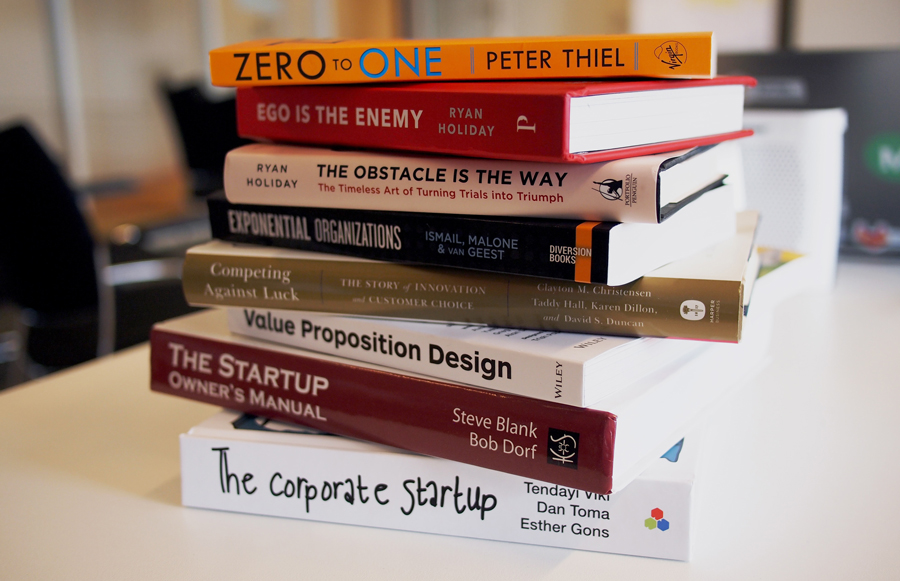Warren Buffett spends five to six hours per day reading five newspapers and 500 pages of corporate reports. Bill Gates reads 50 books each year. Mark Zuckerberg reads at least one book every two weeks. When asked how he learned to build rockets, Elon Musk said, “I read books.”
“You don’t stop getting old until you stop learning, Every book teaches me something new or helps me see things differently”. – Bill Gates
It’s a settled fact that reading offers tremendous benefits. It increases intelligence, is cathartic and reduces stress by 68%, helps us focus, helps us improve at what we pursue, and makes us better human beings overall.
Deep down, everyone will admit that reading is a very useful activity (even the people who don’t read).
Reading is simple, but it’s not easy. Personally, I would like to read more than I currently do. But I find it difficult to stay focused and attentive. And I’m sure that I’m not the only one facing this challenge.
This led me to pose questions to myself: Why do we find it difficult to do something as useful as reading? Why do we lose interest? How can we overcome these challenges?
Some of the possible reasons I came across are:
- We read when we’re tired.
- We set aggressive and unsustainable reading targets for our New year resolutions, and give up.
- We get distracted by other activities, which means we’re not fully present with the book.
- We focus too much on a single point instead of moving ahead.
- We re-read sentences, which in turn leads to boredom.
Reading is of various types – elementary, inspectional, analytical, and synoptic. We’ll dive deeper into each type in a separate post. But the key of all these reading types is to understand the essence, not every word.
Here are four pointers which you can use to overcome the challenges we face while reading:
a) Read when your mind is fresh.
Reading the cheapest and most effective investment you can make in your personal growth (we’ve already discussed why earlier). It’s best done when your mind is fresh and sharp rather than when it’s dull and tired, which increases the chances of distraction.
Start with reading for ten minutes a day and slowly increase it to 20-30 minutes. Like in physical exercise, make steady progress in duration and intensity for this mental workout.
b) Be Fully Present.
Learning to be present at the moment is an important trait not just for reading, but for life as well.
To increase your concentration on the activity, focus solely on the book and de-clutter your mind – push out all other thoughts for those ten minutes.
c) Build a Reading Group.
We often re-read sentences or paragraphs which we don’t understand. But this back-and-forth leads to boredom and loss of interest.
If you cannot comprehend a specific part in the book, move on. Like a movie, the plot will reveal itself even if you’ve missed a tiny portion. Also, build a reading group with likeminded people. You can exchange thoughts and get clarifications on what you didn’t understand, if at all.
d) Write a Brief Summary.
Develop the habit of having a quick summary or takeaways after every read. This helps develop comprehension and which over a period of time helps develop focus and concentration.
You also see progress and feel motivated to invest further in reading.
You Can Read Faster
The average human being reads at 200-250 words per minute (WPM). But the mind is capable of reading much faster! Don’t believe us? Look for yourself.
Let’s compare how much time a slow reader, a speed reader, and a lightning-fast reader will take to read an average book. Assuming that the book is 200 pages long, each page has 250 words, and each reader reads for just 20 minutes daily, here’s what it might look like.

Speed readers can complete reading one book in less than a week which means that as a speed reader, you can read more than 50 books in a year. Imagine the remarkable transformation that will occur in your personal and professional lives. Isn’t that amazing?
In the next post, we shall elaborate on a simple process you can follow to increase your reading speed by at least 100 percent. Stay tuned.
[Update: To read the second part, you can click here.]
Reference Links:
Warren Buffett reads 500 pages per day: source
Elon Musk on building rockets: source
Reading can help reduce stress: source
Reading makes us smarter: source
